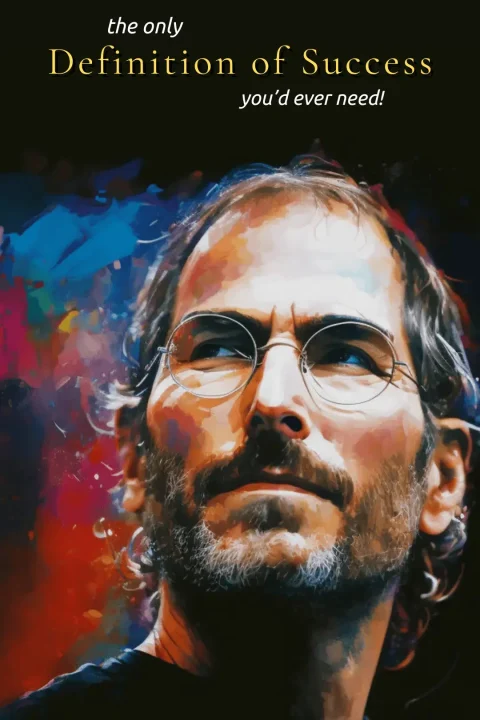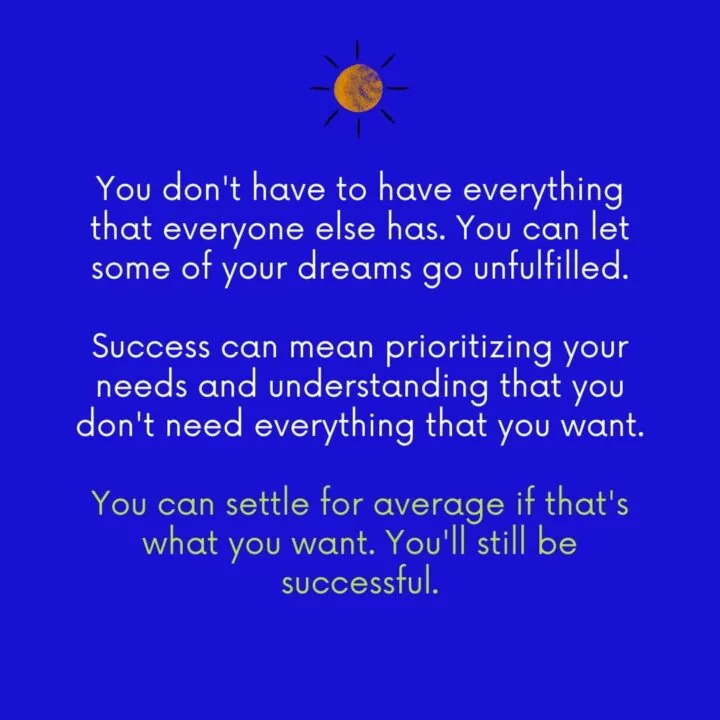Today's Friday • 7 mins read
One of the most parodied definitions of success, that takes its cue from an Edison quote about genius, says:
“Success is 1% inspiration, 99% perspiration.”
So, some see success as an endless struggle. Others think success means the end of all struggles.
But the real question is something else: How “you” define your success?
How Do You Interpret Success?
Success usually means achieving something that brings you joy. It may be solving challenges, growing personally, professionally, or spiritually, getting others’ love, or learning to prioritize self-love.
Still, you need to have your personal definition of success, because:
- First, success is a moving target, any way you define it.
- Second, our society creates prototypes of what success looks like when, in reality, success is relative to the person who succeeds.
The meaning of success for your family and friends will differ from yours; accept that.
As Rumi said:
“It’s your road, and yours alone. Others may walk it with you, but no one can walk it for you.”
So, decide how you will attach your signature to your success definition.

A Personal Definition Of Success
Stop for a moment here and ask yourself: What is success to you?
This is mine:
Success is achieving a balance in my priorities.
That definition factors in space for my personal priorities — whatever those ‘mix’ of priorities be, and whatever that ‘sweet’ point of balance be.
Over time, as I finish my goals, new choices evolve and my priorities change. But that definition keeps my success meaningful even when my priorities change.
Every January, I set a few goals. Then each month, as I review my progress, I always ask myself,
“Am I achieving a balance in my priorities?”
It also factors in a sense of balance between the types of connections that each of us has. To one, Colleagues:Friends could find a sweet balance at 30:70. To another, it could even out at 50:50.
That definition makes us ask ourselves,
“Do I have a balance between my personal and professional relationships?”
Since When Did Money Become A Measure of Success?
Many of us see success as a measure of wealth, but this is not something new. Back in 1971, the Oxford English Dictionary observed that success has become increasingly associated with wealth and prestige.
But that’s a flawed and unfair way to define success. How?
Success, when judged solely by one’s financial worth, demeans the creative efforts and merits of those who pursued non-money careers — writers, poets, scientists, explorers, painters, and many others.
So, what are some good ways to measure success?
Good Ways To Measure Success
These are some good ways to measure your success:
- Completing your work with excellence and integrity.
- Doing something meaningful, however small, each day.
- Achieving goals that benefit you without harming others.
- Spending joyful moments with those who are dear to you.
- Learning something new after a mistake, criticism, or failure.
- Learning to say No to work more often, and Yes to fun outside work.
Two great ways to measure success come from Wooden and Emerson:
- “The peace of mind which is a direct result of self-satisfaction in knowing you did your best to become the best that you are capable of becoming.” — John Wooden, American basketball coach and player, nicknamed the Wizard of Westwood
- “To laugh often and much; to win the respect of intelligent people and the affection of children; … to appreciate beauty, to find the best in others; to leave the world a little better; whether by a healthy child or a garden patch … to know even one life has breathed easier because you have lived.” — Ralph Waldo Emerson, American essayist, lecturer, philosopher, poet
Two Keys To Success In Business & Life
The widely held belief that success is limited to those with natural talents is a myth.
Every person is born with a unique set of talents that allows them a special ability to perform certain tasks effortlessly. However, it is not enough to be born with extraordinary abilities to be successful. An off-the-charts high IQ in a child does not predict a future of brilliant success.
Our innate abilities may help us get a head start in the game. But those abilities do not remain constant. They change as we age. So, they cannot bring us success on their own.
Success, instead, demands two key qualities:
- Steady Focus
- Constant Curiosity
Carol S. Dweck says a similar thing in different words in her Mindset: The New Psychology of Success:
- Focus on Learning (Instead of focusing on Achievement)
- Adopt a Growth Mindset (Instead of adopting a Fixed Mindset)

The picture above is from the back cover of the final issue of the Whole Earth Catalog. It was a highly innovative magazine of its time, brought out by Stewart Brand.
Steve Jobs described the publication as “Google in paperback form, 35 years before Google came along.”
That 1971 cover picture shows a deserted early morning old country road with just four words:
Stay Hungry. Stay Foolish.
Years later, in 2005, Steve Jobs, the late Apple co-founder, used it in his inspirational Commencement Speech at Stanford. And made those four words immortal.
Those four words were what became the definition of success in business and life for Steve Jobs. And those words are what he suggested we all make our own.
The Harsh Reality of Success In Life
Harsh reality:
The world doesn’t allow everyone to be equally successful. If that happens, the word “success” would lose its meaning.
You’re almost certainly never going to achieve the level of success that your heroes have. Some of your dreams and desires will remain unfulfilled, despite all your plans and attempts.

But here’s the thing: That’s okay; you can be successful in your own way. The goal is to balance achieving your goals with enjoying life.
Fact: Vincent van Gogh sold only two paintings during his lifetime for around $100. At the age of 37, he died believing himself a failure. In 1990, his “Portrait of Dr. Gachet” sold for $82 million.
Popular Success Quotes
- “If we’re not happy, then we’re not successful.” — The Minimalists Joshua & Ryan
- “Success is liking yourself, liking what you do, and liking how you do it.” — Maya Angelou
- “Success is a lousy teacher. It seduces smart people into thinking they can’t lose.” — Bill Gates
- “I define success as living my true purpose and having a positive impact on the lives of people.” — Raj Sisodia
- “We do not learn so much by our successes as we learn by failures—our own and others.” — Frank Lloyd Wright
- “Some of the world’s greatest feats were accomplished by people not smart enough to know they were impossible.” — Doug Larson
- “Success is no accident. It is hard work, perseverance, learning, studying, sacrifice and most of all, love of what you are doing or learning to do.” — Pele
Final Words
Success and failure are both essential experiences. We realize the importance of both when we look back on our lives.
“You can’t connect the dots looking forward; you can only connect them looking backward. So you have to trust that the dots will somehow connect in your future. You have to trust in something — your gut, destiny, life, karma, whatever.”
— Steve Jobs
√ Also Read: Unusual Tips On How To Be Successful In Life.
√ Please share it with someone if you found this helpful.
» You deserve happiness! Choosing therapy could be your best decision.
...
• Disclosure: Buying via our links earns us a small commission.
